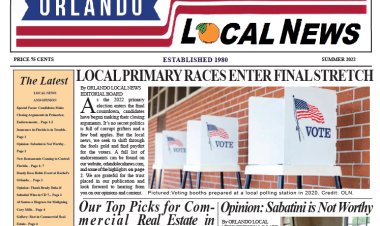Protecting Economic Freedom: Opposing the Credit Card Competition Act from a Libertarian Perspective

The Credit Card Competition Act, proposed in Congress, presents a significant threat to economic freedom and consumer choice. As libertarians, we believe in minimal government intervention and the preservation of free-market principles. Therefore, we vehemently oppose this legislation, which would undermine competition, limit consumer options, and infringe upon individual liberty.
At the core of libertarian ideology lies the principle of free market competition. The Credit Card Competition Act, however, seeks to undermine this fundamental tenet by imposing government-mandated regulations on credit card transactions. By dictating which networks credit transactions must be routed through, the Act interferes with the natural forces of supply and demand, disrupting the delicate balance of the marketplace. Such governmentintervention distorts market signals, stifles innovation, and ultimately harms consumers by limiting their choices.
Central to libertarian philosophy is the belief in individual autonomy and freedom of choice. Yet, the Credit Card Competition Act would severely restrict consumer choice by mandating specific transaction routing protocols. Rather than allowing consumers to make informed decisions based on their own preferences and needs, the Act imposes arbitrary restrictions that limit their options. In a truly free market, consumers should have the freedom to choose the credit cards and rewards programs that best suit their lifestyles and financial goals, without government interference.
One of the cornerstones of libertarianism is the protection of property rights. Yet, the Credit Card Competition Act infringes upon the property rights of credit card companies by dictating how they must conduct their business operations. By forcing these companies to comply with government-mandated regulations, the Act undermines their autonomy and undermines the principles of individual liberty and free enterprise.
Libertarians advocate for limited government intervention in the economy, favoring voluntary exchanges and spontaneous order over coercive regulations. The Credit Card Competition Act represents a glaring example of unnecessary government overreach into the private sector. Instead of allowing market forces to determine the most efficient and beneficial outcomes for consumers and businesses alike, the Act imposes burdensome regulations that stifle innovation and entrepreneurship.
Economic liberty is a fundamental aspect of libertarian philosophy, empowering individuals to pursue their own economic interests without undue interference from the state. However, the Credit Card Competition Act poses a direct threat to economic liberty by imposing government mandates on credit card transactions. By restricting the ability of credit card companies to compete freely in the marketplace, the Act undermines the principles of economic freedom and individual autonomy.
The Credit Card Competition Act represents a dangerous encroachment on economic freedom and consumer choice. As libertarians, we stand firmly opposed to this legislation, which threatens to undermine free market competition, restrict consumer options, violate property rights, and infringe upon economic liberty. Instead of imposing arbitrary regulations, we advocate for a truly free and voluntary exchange of goods and services, where individuals are free to make their own choices and businesses are free to compete without government interference. It is imperative that we defend these principles and reject any attempts to erode our fundamental freedoms in the name of misguided regulation.
Alex Snitker was a Libertarian candidate for U.S. Senate in 2010, becoming the first Libertarian candidate for U.S. Senate to appear on the ballot in Florida history. He was elected Vice Chair for the Libertarian Party of Florida in May 2013. Among his other accomplishments was the founding of the Liberty First Network, a legislative advocacy group in Florida; co-authoring “The Neighborhood Project”, a book focused on organizing an effective activism strategy at the precinct level; consulting and managing numerous local and statewide campaigns in Florida

 Alex Snitker
Alex Snitker 















